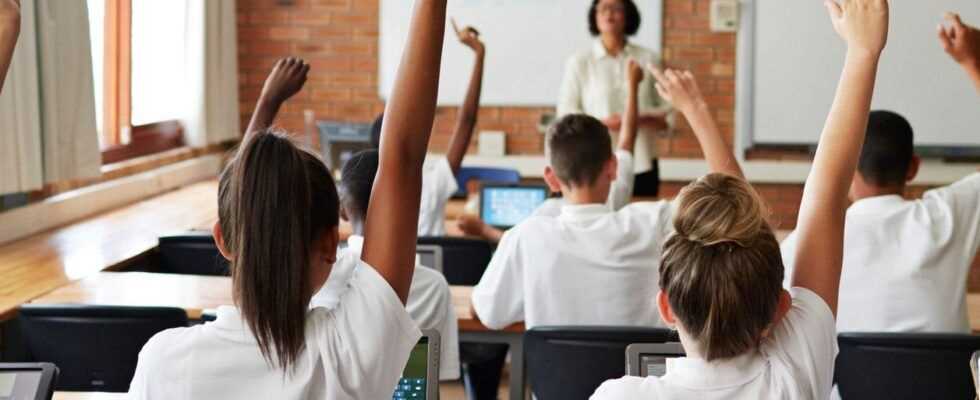By the start of the next school year, 1,800 jobs will be cut in middle and high schools, as part of the 2021 budget bill for school education. A measure that risks further weakening students in difficulty. Teacher unions are warning.
Promoting kindergarten classes by cutting down on secondary education is the project led by Jean-Michel Blanquer, Minister of National Education. As part of the 2021 budget bill for school education, he announced in 2017 the creation of 2,500 primary education posts and the elimination of 1,800 posts in colleges, high schools and administrative services. Objective: to master the fundamentals from kindergarten.
A budget cut that puts students in college and high school in great difficulty, as evidenced by Leon Alceste, associate professor of Modern Letters for 7 years in college in disadvantaged suburbs. “We do away with the half-groups, and we end up with classes that tend towards the maximum number of students – even though France is already poorly classified among the OECD countries when we consider the staff ratio (the number students per teacher) ” he is indignant. “In vocational high school, the current minister has initiated a reform which will drastically reduce the number of hours of French and History-Geography. It is difficult to see how this could benefit the students. All these decisions seem to be taken without ever getting information in the field, with the teachers.”, He emphasizes.
Read also :
Bad news for students who risk finding themselves without real follow-up. This is what Thomas, a high school student in a school in Pantin, fears. "One of the good things about the half-group is that the teacher has more time to devote to answering each student's questions", says the 16-year-old. “We also have a quieter class, because necessarily with a full class of 30 students, there will be more noise and less concentration. It also allows us to protect ourselves from the coronavirus because we meet fewer people during the day ”, he concludes.
With this new mode of operation, pupils in difficulty may have less time for duplicating, for example for homework help. "We return the difficulty to the outside world and to communities (associations)", indicates François Lecointe, deputy secretary general of SNES in Isère. According to a TNS-Sofrès survey, one in 5 middle school students and one in 3 high school students take private lessons at home. Families, for their part, spend 1,500 euros per year (before tax deduction) in home lessons.
An increase in the workload for teachers
Since 2017, there have been 6,315 teaching jobs lost against an increase of 52,531 students. “On average, one less teacher every 4:40 and one more student every 35 min”, indicates the SNES-FSU.
For secondary school teachers, the school rhythm will be even more intense, but paid more thanks to desocialized overtime. “Previously, a teacher had 18 hours of lessons per week. Today he will have 20 hours to which overtime will be added, not counting the ancillary tasks, which overloads the teacher ", worries François Lecointe. "While after confinement, school difficulties have exploded, these cuts (of jobs) will amplify them", underlines the union.
For Léon, the limit of students per class was raised from 28 to 30 students in his establishment, a choice that was not without consequence. “This year again, it forced us to make choices: we had to allocate a good part of our margin hours to maintain a class, only these hours normally allow us to do duplication, to work in groups or to do co-intervention ”, says the 34-year-old teacher. "We had to sacrifice our working comfort", says Leon.
Student monitoring required
In addition, certain optional subjects are in danger: theater, cinema, plastic arts, classical languages or even the third living language. The establishments have seen their number of teaching hours drastically reduced. These options, often practiced in small groups, allow students to do an activity that they enjoy without having to spend money.
For underprivileged children, it is a way to discover an activity that they could not have done outside of school. It is also an opportunity to discover a foreign language, a civilization or even a profession for some. It's also reassuring for parents, as teens will pull away from their phones to socialize.
Teachers and unions hope to reach an agreement with the rectorates to succeed in continuing to support students in good conditions, while having the necessary human resources.
